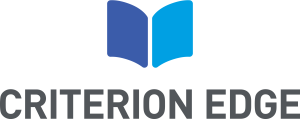Author: Criterion Edge Writers
Concerns and frustration surrounding the implementation of Medical Device Regulation (MDR) and In Vitro Diagnostic Regulation (IVDR) were voiced in early May at MedTech Europe’s 2022 Forum in Barcelona. Two notable sessions that discussed MDR and IVDR implementation were reportedly lively and filled to capacity. The chairs of these sessions, Marc Pierre Möll, CEO of BVMed, and Oliver Bisazza, MedTech Europe’s Director General of Industrial Policies and External Affairs, shared their reflections on these discussions in Barcelona and the current impacts of MDR in an interview with MedTech Insight.
Foremost in a constellation of concerns, these industry leaders point to:
- Impact of the lack of predictability in the European regulatory system
- Resultant migration of innovators to locations outside the EU
- Possible solutions, including the creation of a free-standing European Medical Devices Agency
Near-term Impact of Regulatory Unpredictability in the EU
This phenomenon of regulatory unpredictability is the result of disjointed MDR and IVDR implementation since their adoption in the EU in 2017. According to Bisazza, the regulatory system was rolled out prior to the finalization of necessary structures and documents. In the near-term, this patchwork approach is feeding industry insecurity with respect to creating and launching innovation and decreasing confidence around planning and timelines. In the current environment, according to these leaders, it is difficult to know when technology will reach the healthcare system and patients.
A Migration of Innovation
Additional unease is being fueled by the current exodus of medtech innovators from the EU. Relocation of innovation launches to other geographic regions, such as the US and Japan, is a direct consequence of regulatory unpredictability, according to Möll.
He points to a survey conducted by Boston Consulting Group showing that 89% of companies sponsoring EU product launches say they will now prioritize US regulatory approval, and 23% of respondents with successful CE Mark products pursuing Japanese and Chinese registration. Significantly, 62% of respondents to this survey found the US regulatory pathway predictable while only 22% had a similar opinion of EU registration. Möll explains that this data reveals how companies “view the new MDR rules as complex and unpredictable, making it less appealing to develop and launch novel products in Europe.”
Will this migratory trend reverse when there is more predictability in Europe? Möll believes the answer will only become apparent once MDR implementation is complete. If the shift to the US and other locations becomes permanent, Möll postulates that “then the MDR will need revisiting.”
A European Medical Devices Agency?
While implementation issues remain a primary focus, there are calls for different models of regulation along with a need for industry alignment around expectations. Collaborative discussions on the functioning and management of Europe’s regulatory system, potential responses and optimal solutions are currently taking place between national authorities and the European Commission’s DG Sante.
A potential European agency wouldn’t necessarily replicate the model of the US Food and Drug Administration (FDA) according to these industry leaders. Bisazza believes that while there is “interest in retaining notified bodies and CE marking,” questions remain regarding the efficiency and predictability of the certification pathway, the optimal level of oversight of notified bodies, and the degree of delivery on the promise of “harmonized requirements.” Möll speculates that a new potential entity could be run by notified bodies, a hybrid system, or a distinct European Medical Device Agency.
Now is the Time
In anticipation of the 10-year anniversary and reassessment of the MDR and IVDR in 2027, and given how long it takes to invoke reforms, now is the time, according to Bisazza, to “put changes into motion.”
Does your organization need support for MDR related submissions including CER, CEP, PMCF plans or reports? Criterion Edge has the expertise and bandwidth to work with you and get the job done. We have expert medical writers to support your organizations in developing the necessary documents to ensure a smooth transition and meet these fast-moving deadlines. Get a free consultation today.

